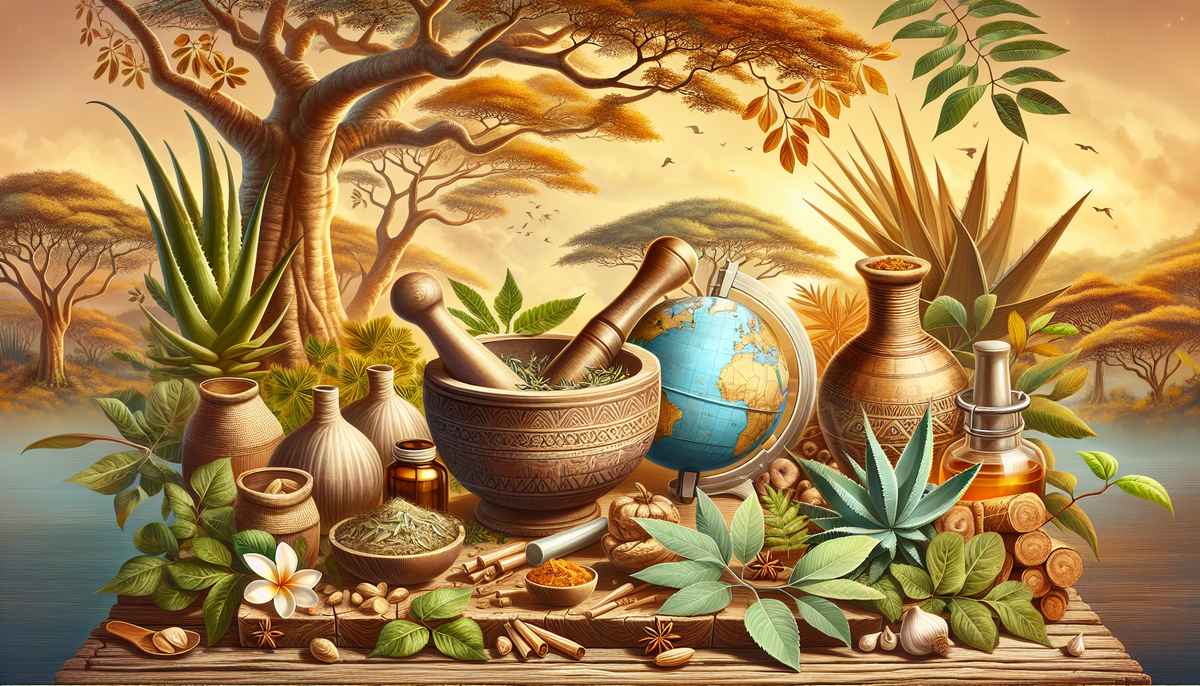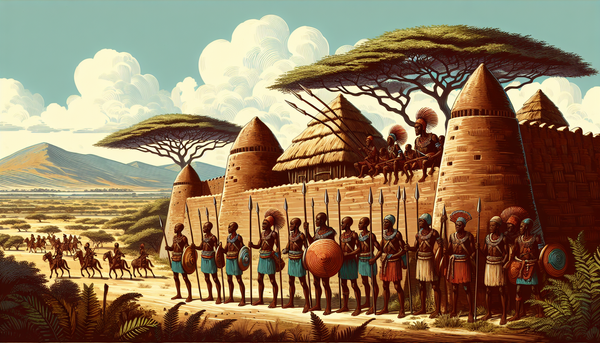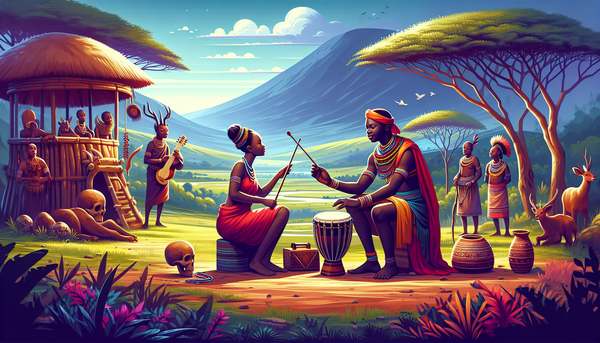The Influence of African Herbal Medicine on Global Practices

Introduction to African Herbal Traditions
African herbal medicine is a time-honored practice that has roots dating back thousands of years. This rich tradition encompasses a vast array of healing techniques and botanical knowledge, integrating spiritual, social, and environmental elements. African societies possess an intricate understanding of their local flora, derived from generations of trial and observation. Each community often has its unique herbal remedies, passed down through oral traditions and ritual practices.
Herbal medicine is deeply woven into the fabric of African cultures, where it is used not only for treating ailments but also for promoting overall well-being. Indigenous healers, often regarded as custodians of ancestral wisdom, play a crucial role in these practices, serving as mediators between the physical and spiritual realms. Many herbs are believed to carry specific energies, and their applications are guided by both empirical knowledge and cultural beliefs.
In recent decades, there has been a growing interest in African herbal medicine on the global stage. As people seek holistic and natural alternatives to conventional treatments, the wisdom of African herbal practices is gaining recognition. This emerging acknowledgment is signaling a new era of cross-cultural integration and collaboration in health and wellness.
Historical Roots and Cultural Significance
The historical roots of African herbal medicine are deeply entrenched in the continent's diverse cultures and ancient practices. Long before the advent of modern medicine, African societies relied on local plants for healing, employing a holistic approach that emphasized the interconnectedness of body, mind, and spirit. The significance of these practices is reflected in archaeological findings, historical texts, and the oral traditions of various communities.
Ancient civilizations, such as the Egyptians and the Nubians, documented their use of herbs in medical texts, showcasing the sophisticated understanding of botany and medicine. Knowledge was preserved through generations, often taught through storytelling, rituals, and community gatherings. This deep-seated respect for plant-based treatments not only served to promote health but also reinforced cultural identities and communal bonds.
Moreover, herbal medicine plays an essential role in spiritual practices across Africa. Many herbs are considered sacred and are integrated into rituals to invoke healing spirits or ancestral guidance. The intertwining of herbal knowledge with cultural beliefs illustrates a profound relationship between nature and humanity, where the use of natural remedies is seen as both a respected practice and a form of cultural heritage, reflecting the values and philosophies of the people.
Key Herbs and Their Uses
African herbal medicine boasts a rich variety of plants, each with unique therapeutic properties and cultural significance. One of the most renowned herbs is African Wormwood (Artemisia afra), traditionally used to treat fevers, respiratory disorders, and digestive issues. Its anti-inflammatory and antimicrobial properties make it a staple in many herbal treatments.
Another vital herb is Moringa (Moringa oleifera), often referred to as the "miracle tree." Known for its high nutritional content, Moringa leaves are utilized to combat malnutrition and enhance immune function. Additionally, its antioxidant properties promote overall health.
Baobab (Adansonia digitate) is celebrated for its rich vitamin C content and is commonly used to boost immunity and improve skin health. The fruit's pulp is often consumed or applied topically, showcasing its versatility.
Honeybush (Cyclopia spp.) is another significant herb, known for its sweet flavor and antioxidant-rich profile. It is often brewed as tea to promote relaxation and support digestive health.
Lastly, Devil's Claw (Harpagophytum procumbens), primarily used for pain relief and inflammation, reflects the emphasis on using plants for both physical and holistic healing. Together, these herbs illustrate the deep-rooted and diverse nature of African herbal practices.
Integration into Modern Medicine
The integration of African herbal medicine into modern healthcare is an evolving process that bridges traditional knowledge with contemporary scientific approaches. As global interest in natural remedies and holistic healing rises, researchers and healthcare professionals are increasingly exploring how these ancient practices can complement conventional medicine.
One significant avenue of integration is through collaboration between traditional healers and biomedical practitioners. This partnership allows for a better understanding of herbal safety, efficacy, and potential interactions with pharmaceutical drugs. In countries like South Africa, initiatives have been established to create guidelines for the safe use of herbal remedies, ensuring that patients benefit from both worlds without compromising their health.
Moreover, scientific studies are shedding light on the pharmacological properties of several African herbs, validating their use and leading to the development of new therapeutic agents. For instance, compounds derived from plants like Harpagophytum procumbens have gained attention for their analgesic effects, which have been harnessed in formulations for pain management.
This integration not only enhances healthcare strategies but also fosters respect for cultural practices. By valuing traditional knowledge and incorporating it into mainstream healthcare, a more holistic and inclusive approach to patient care emerges, ultimately enriching the global medical landscape.
Case Studies: Successful Global Applications
The global application of African herbal medicine is illustrated through various successful case studies that highlight both efficacy and cultural respect. One notable example is the use of Harpagophytum procumbens, or Devil’s Claw, which has garnered attention in Europe and North America for its anti-inflammatory properties. Clinical trials have demonstrated its effectiveness in treating osteoarthritis and chronic pain, leading to its incorporation into dietary supplements and pain relief formulations.
Another compelling case is the adoption of African Ginger (Siphonochilus aethiopicus), traditionally used for respiratory complaints. Research in South Africa has validated its use for treating bronchitis and coughs, resulting in its integration into commercial herbal teas and syrups available in international markets.
Additionally, Moringa has seen widespread global recognition due to its exceptional nutrient profile. It's now marketed as a superfood in health stores worldwide, underscoring a shift toward dietary inclusivity regarding traditional sources.
These examples not only highlight the therapeutic potential of African herbs but also reflect a growing trend towards integrating indigenous knowledge into conventional healthcare systems. Such collaborations enhance global health initiatives while empowering local communities and preserving their rich medicinal heritage.
Challenges and Misconceptions
Despite the valuable contributions of African herbal medicine to global health, various challenges and misconceptions hinder its recognition and acceptance. One significant challenge is the lack of standardized practices and regulations governing the use of herbal remedies. Unlike pharmaceuticals, many herbal products are not subjected to rigorous testing for safety and effectiveness, leading to concerns about quality control, potential side effects, and interactions with conventional medications.
Misconceptions also abound regarding the efficacy of herbal medicine. Critics often dismiss traditional practices as "folk remedies," undermining the extensive empirical knowledge accumulated over generations. This bias can lead to a lack of respect for indigenous knowledge systems, limiting collaboration between traditional healers and modern healthcare practitioners.
Another issue is the commodification of herbal resources. As global demand for herbal products rises, overharvesting and unsustainable practices threaten biodiversity and the ecosystems where these plants grow. Lack of ownership rights and equitable benefit-sharing further complicate the situation, often sidelining local communities that have preserved this knowledge.
Addressing these challenges requires a concerted effort to foster respect, implement regulatory frameworks, and promote sustainable practices. Ultimately, bridging the gap between traditional and modern medicine is essential for maximizing the benefits of African herbal traditions within the global healthcare landscape.
Future Potential and Research Opportunities
The future potential of African herbal medicine is vast, with numerous opportunities for research and innovation that can enrich global healthcare. As the world increasingly turns to natural and alternative therapies, the insights gained from traditional African practices can significantly contribute to the development of new treatments and health solutions.
One promising area of research is the pharmacological study of lesser-known herbs. Many plants utilized by African healers have not yet been thoroughly examined scientifically. Rigorous studies could uncover new therapeutic compounds, leading to novel pharmaceuticals that address unmet medical needs, particularly in areas such as pain management, chronic disease, and infectious diseases.
Furthermore, there is potential in integrating traditional knowledge into modern healthcare systems. Collaborative research projects involving traditional healers, botanists, and healthcare professionals can promote a holistic understanding of both conventional and herbal remedies, paving the way for patient-centered care models.
The rise of biotechnology and sustainable agriculture presents opportunities for cultivating indigenous herbs at scale, ensuring their availability while supporting local economies.
Establishing educational programs that focus on these traditional practices can also enhance global awareness and appreciation for African herbal medicine. By embracing research and innovation, the future of African herbal medicine holds promise for improving health outcomes while preserving cultural heritage.



